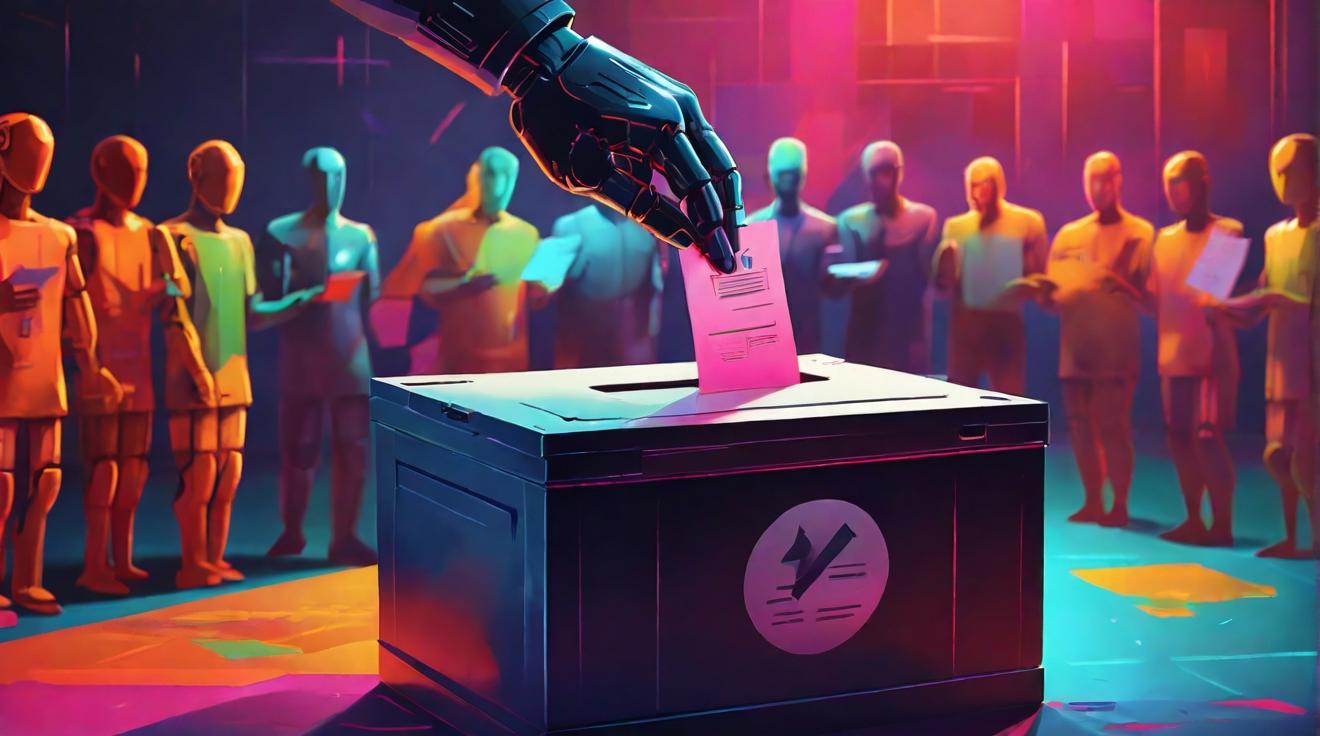Generative AI Raises Concerns About Election Manipulation
Artificial intelligence (AI) has been a topic of concern in previous elections, with its potential to sway voters. Now, AI is set to play an even larger role in the upcoming U.S. elections, raising questions about the integrity of the democratic process.
Generative AI, a form of AI that can generate content based on raw data and user prompts, is at the center of these concerns. It has the ability to create images, written information, and other data, which opens up opportunities for manipulation.
One way generative AI can be misused is by spreading incorrect information to voters through chatbots and algorithms. This misinformation can influence voters’ opinions and potentially sway the outcome of the election.
Furthermore, there are worries about the suppression of voters. While AI can be used to remove ineligible voters and match signatures, there is a risk that it may unknowingly or knowingly exclude eligible voters, leading to voter suppression.
Tech and AI companies are failing to address these concerns adequately. There is a lack of investment in election integrity initiatives, and AI companies do not have strict systems in place to regulate the use of their technology in elections. This lack of oversight and accountability contributes to the potential misuse of AI during elections.
The American Constitution, which values free speech, is also at odds with the need to prevent and stop misinformation. Balancing the protection of free speech with the preservation of election integrity poses a challenge.
Adding to the complexity, foreign countries like China, Iran, and Russia have been caught attempting to manipulate U.S. voters using content generated with AI.
To counter the misuse of AI, social media platforms are taking steps to address election misinformation. YouTube has changed its policy to allow content that advances false claims, but requires advertisers to disclose synthetic content that has been altered or generated by AI.
Facebook, Instagram, and Threads, owned by Meta, will label images and ads that were created using AI to help users distinguish between real and fake information.
Some states have even passed laws to regulate political deepfakes, including California, Michigan, Minnesota, Texas, and Washington.
Despite the concerns, there is hope that the awareness of AI’s potential misuse will encourage voters to think critically and conduct their own research before making decisions. Ultimately, with the U.S. election system being decentralized, it becomes harder for AI to be misused, as votes are managed at the local level.
While the impact of AI on this year’s election remains to be seen, it is crucial for voters to be vigilant and think critically about the information they receive. By doing so, they can ensure the integrity of the democratic process.
Analyst comment
The news is negative. The increased use of generative AI in upcoming U.S. elections raises concerns about the manipulation of the democratic process. Misinformation spread through AI can influence voters’ opinions and potentially sway the outcome. There is a lack of investment and oversight in election integrity, and foreign countries have been caught attempting to manipulate U.S. voters using AI-generated content. Social media platforms are taking some steps to address the issue. Voters need to be vigilant and think critically about the information they receive to safeguard the integrity of the democratic process. The market may see increased demand for AI regulation and oversight in elections.













